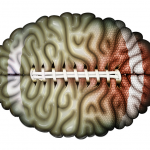A small, yet promising, brain trauma study may someday lead to a time when doctors can forecast which patients who incurred concussions or repeated blows to the head will be at risk for future neurological problems.
dementia
The prevalence of dementia in the United States significantly declined from 11.6 percent in 2000 to 8.8 percent in 2012. The consequence of this impacts retirement, families, the health care system, life expectancy, morbidity and mortality, pensions, housing, transportation and countless societal realms.
In the fight against Alzheimer's, memory loss has kept its place as the frontrunner of early warning signs, but that may no longer hold true.
A new study of elderly Germans assessed the possible link between acid-blocking drugs called proton pump inhibitors (PPI) and new-onset dementia. A 44 percent increased risk of dementia was found among those on PPIs long-term, but no cause-and-effect link can be established based upon this study.
In a surprising report, researchers using data from the long-term Framingham, MA study have shown that the age-specific incidence of new cases of dementia have actually fallen by 44 percent since 1977. The number of overall new cases, however, will continue to rise as the population ages.
Two large meta-analyses in JAMA shed light on the link between Alzheimer s disease and amyloid beta (A-β). The key findings indicate that it is likely to take up to 30 years of amyloid deposition before clear signs of dementia are manifest but such deposits are not diagnostic.
Last week we wrote about Jane Brody s New York Times article on solutions for cognitive decline. And this week, she covers cognitive decline once again, this time focusing on different tests for early signs of dementia.
A simple set of tests may increase our ability to predict Alzheimer s type dementia. Why is this important? We must have reliable early predictors to do the tests that will eventually yield a prevention or treatment.
The latest in health news: Consumers want GMO labels, but few know the facts, flu season is the worst one yet and failed flu shot to blame, & a class of drugs called anticholinergics have been linked to dementia later in life.
A new study suggests that diabetes prevention and glucose control in middle age may protect against cognitive decline. The study, from Johns Hopkins Bloomberg School of Public Health, was published December 2nd in Annals of Internal Medicine.
The latest in health news: Attack on sugary drinks is back, Alzheimer's in a dish for research, and why rapid weight loss may not result in weight gain just as fast
About 7 million Americans have Alzheimer s disease today, burdening families with not only the added role of providing care

